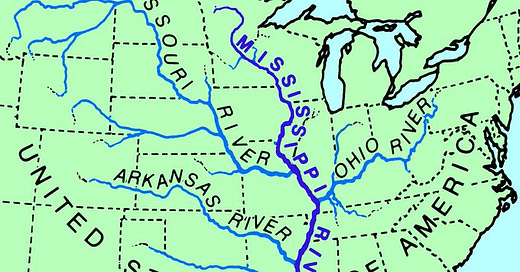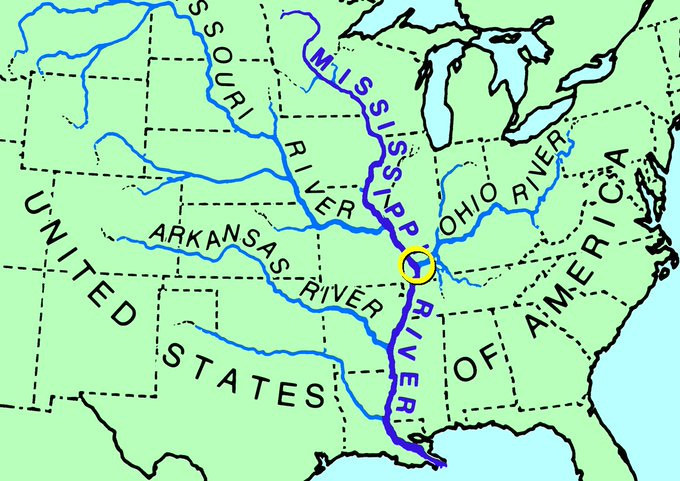First we talked about what metaphysics really are, and then used that to show why there can be married bachelors without being silly & stupid with our definitions.
Let’s keep going and talk about how opt-in, opt-out litmus criteria isn’t just an issue with abstract terms, but also with identifiers we use for normal, real-world things.
"You can't step in the same river twice,” wrote Heraclitus. Rivers are great ways of "breaking" our folks intuitions about rigid, stable identity: The “stuff” is always changing, so it can’t be persistent in a material way, yet it can still be persistent in terms of certain features.
It’s when we ask ourselves “Which features, though?” that our reconstruction project hits a snag. A lot of folks get it in their heads that there ought to be some stance-independent, purely objective answer to this question. This is the same attitude you’ll see folks have about meanings of words. How we choose to label something is up to us, and that spooks people, so they’ll do anything they can to depersonalize the choice until “the universe is telling us how to label things” instead.
For example, when two named rivers meet at a fork, it’s an open question what to call the river flowing from there. But you can resolve this question through some litmus criteria.
E.g., you can name the combined river after the contributing river that's longer. Or has the larger drainage area. Or has the larger average flow. Now our identification is purely objective, right?
Except… those are different litmus criteria. Which litmus criteria do you want to use?
At the fork between the Ohio and Mississippi Rivers, the Ohio River is shorter. So per that litmus, the current map has it right.
But the Ohio River has a much larger flow than the Mississippi, so per that litmus, the rest should be named the Ohio River.
Uh oh.
And there are more issues upstream!
The Missouri river is longer coming in and enjoys the larger drainage area. By those litmus criteria, the rest should be called the Missouri.
In truth, the Missouri has a slightly smaller average flow today — but that's only after it was clobbered by upstream irrigation. Thomas Jefferson wrote that in his day, the Missouri's contribution was greater.
Now, you could give primacy to the current convention. But, of course, a formalizing body can simply decide to change the name going forward and forcibly alter convention. Then the current convention would be different.
So where’s that stance-independent, purely objective grounding we were hoping to find? It isn’t there. The universe didn’t give us the answers. Even though we came up with some litmus criteria, stance-dependence lurked because those criteria were fuzzy, or in conflict, or simply weren’t followed properly, pitting the merits of momentum against the merits of propriety.
We wanted to delegate the task to the universe, and just label things as the universe prescribed.
We wanted the universe itself to deontically ground us.
We wanted naming to be an empirical exercise.
Instead, by digging under the ground we thought we had, we find nominalism lurking: That terms, labels, framings, taxonomies, and any other expressive choices are, as it turns out, choices, dictated by some mix of feelings + facts (that our feelings opt to regard).
But you and I don’t have to be spooked by this. Even when we acknowledge river nominalism, this does not lead to catastrophic river nihilism. That’s because we still have meaning. When I tell you, “We should fish on the McKenzie,” there's enough meaning there to provoke the intended response, some planning, and a good time.
Resemblance & causation do not need to be stance-independent for them to be handy.
Theseus knew where his ship was to sail; I know where the McKenzie is to fish. That’s all that really matters about the persistence of their identity, and that’s all that really matters about our labeling choices accordingly.







